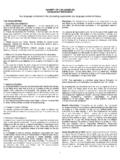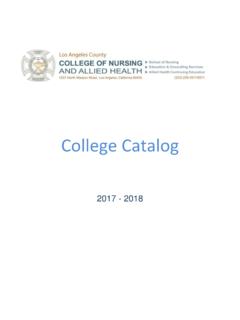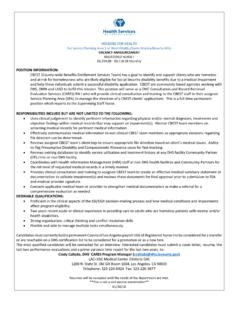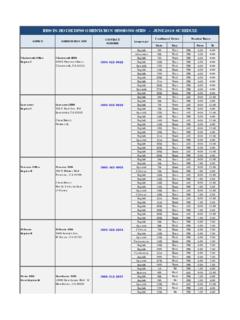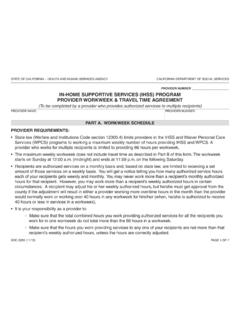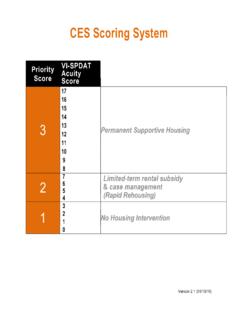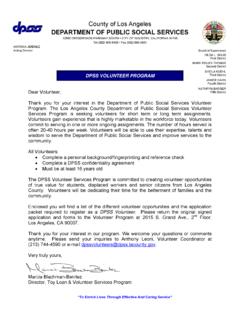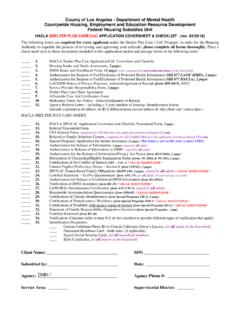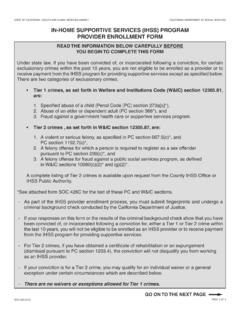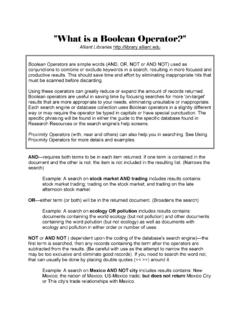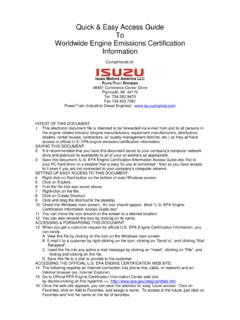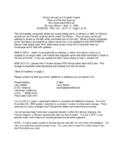Transcription of Basic internet search techniques
1 Basic internet search techniques . Learning Objectives At the end of this presentation the student will be able to: State definitions for the terms internet , World Wide Web and search engine Analyze a research topic Develop appropriate search strategies and conduct a search Refine search results Defining search Tools Before starting your search it's a good idea to have a Basic understanding of the tools used to retrieve information: internet World Wide Web search engine Defining search Tools The terms internet and World Wide Web (Web) are often used interchangeably, but they are not the same thing Defining search Tools The internet provides the electronic communication structure The Web uses the structure to find and display information from a variety of sources Defining search Tools You can search for information on the Web using any number of different search engines What are search engines? search engines are large databases of web page files Defining search Tools search engines use programs called spiders or robots to crawl.
2 Through Web pages, index the information and add it to the search engine Most of the information is free, though there may be links to sites that are not free Defining search Tools When you use a search engine (such as Google, Yahoo, Ask, AltaVista) you are asking it to scan its index of sites and match your keyword(s) and phrase(s). with those in the texts of documents within its database Defining search Tools Due to the sheer number of words indexed by search engines you may get many responses to simple search requests You may get lengthy documents in which your keyword appears only once Many may not be relevant to your topic Defining search Tools Web pages found by search engines do not go through a review process Anyone can publish their ideas You must evaluate the site and information carefully Defining search Tools No two search engines are exactly alike in terms of Size Speed and content Ranking schemes search options Defining search Tools Remember a search engine Cannot think for you Cannot understand what you mean by your concepts or terms Can only match the word(s) you choose Defining search Tools No single search engine can access the entire Web The information you retrieve will depend on.
3 The search engine (s) and the search term(s) you use Defining search Tools Check your search engine 's home page or initial screen to find out its default or Basic settings Look for help , tips , FAQs . Know the default settings as this may explain why your search results are not what you expected Analyze Your Research Topic Searching for information can be frustrating and the results overwhelming Analyzing your topic, and then using search techniques effectively, will help you obtain the information you need for school or personal use Analyze Your Research Topic First take time to think about exactly what you are looking for be specific It may be useful to write out your topic in the form of a sentence or question to help clarify exactly what type of information you need Analyze Your Research Topic Example: I want to research dyslexia What about this topic are you interested in? Do you want to know the extent of the problem (statistics), signs/symptoms, effect on learning, how to help someone with dyslexia, what age group?
4 Analyze Your Research Topic Example: I want to research driving in the elderly population What about this topic are you interested in? Do you want to know physical changes that affect the elderly, how many elderly still drive (statistics), any laws that limit driving based on age, pros and cons of driving after a certain age? Analyze Your Research Topic Once you identify your topic break it into key concepts or points Write down all the keywords and phrases that best describe your topic Analyze Your Research Topic Think of synonyms or related terms for each concept or point Consider spelling variations as well as the singular and plural of words Analyze Your Research Topic Example: If writing about dyslexia in the adult population consider terms such as: Dyslexia: reading disorder, developmental reading disorder, learning disability Adult: adults, mature individual(s). Analyze Your Research Topic Example: If you are researching driving and the elderly consider these related terms: Driving: drive, automobile driving, car driving, auto driving Elderly: old, aged, geriatric(s), elder, older adult, aging Analyze Your Research Topic The word(s) you use will determine the information you find Using different words in your search may give you additional information Strategies to Conduct Your search To do a Basic search on most search engines type in a keyword you have identified example: dyslexia This will produce the greatest number of results, though often not what you want Strategies to Conduct Your search A multiple keyword search retrieves more specific or focused results Example.
5 Elderly driving laws When using a multiple keyword search , put the most important keywords first Strategies to Conduct Your search Use marks around phrases to make sure they are searched exactly as is otherwise most search engines will look for each word separately Example: nursing care plans vs. nursing care plans Example: world health organization vs. world health organization Refine search Results You can refine and improve your search by using different techniques to broaden or narrow your search results Refine search Results search tips to refine your results Use a plus sign + in front of a word to require its inclusion (no space between the sign and the word). A word or phrase preceded by a + must be present in the search results Example: +newborn Refine search Results search tips to refine your results Use a minus sign in front of a word to require its exclusion (no space between the sign and the word). A word or phrase preceded by a will exclude that word in the search results Example: infant Refine search Results search tips to refine your results Use lower case to find both upper and lower case versions of a word Use of upper case results in only exact upper case matches Refine search Results search tips to refine your results Boolean searching A way of connecting keywords using the operators AND, OR, NOT.
6 Here's how they work Refine search Results Boolean searching Use of the operator AND narrows your search because the results must contain all of the search terms connected by the word AND, not just one of the words Example: heart AND lung Example: newborn AND infant Example: dyslexia AND adults Refine search Results Boolean searching Use of the operator OR broadens your search because the results must contain at least one of the search terms connected by the word OR. Example: heart OR lung Example: adolescent OR teenager Refine search Results Boolean searching Use of the operator NOT excludes terms so that your results do not contain any of the terms that follow it Use of NOT excludes unwanted concepts or words Example: lung disease NOT smoking Refine search Results Here are some additional search techniques you may find useful Truncation Wild cards Refine search Results Use truncation and wildcards to search for variations in spelling and the form of a word Examples of spelling variations can be seen in the difference between American and British spelling Examples: pediatric vs.
7 Paediatric, orthopedic vs. orthopaedic Refine search Results Truncation Typing the stem, or root of a word, plus a *, ? or $ symbol at the end of the word will retrieve all forms of the word Example: allerg$ will yield allergy, allergic, allergen Example: gastro* will yield gastroenteritis, gastrointestinal, gastroenterologist Refine search Results Wildcards Wildcard symbols such as a ? may be inserted in place of a letter(s) in a keyword Useful when you are not sure of a spelling or when there are different forms of the root word Example: wom?n will yield both woman and women Refine search Results The symbols used may vary depending on the database or search engine you are using Your search Approach Remember There is no right or wrong approach. It depends on The topic you choose The time you have - but NEVER wait until the last minute! How exhaustive your search needs to be Need Help? Stuck? Have a question? Can't find what you're looking for?
8 Ask a member of the Library Staff we are here to help you!
